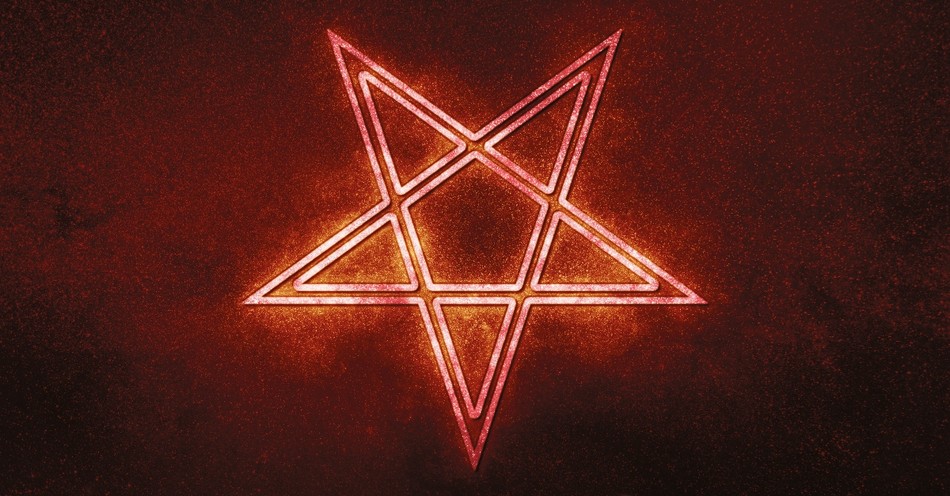The humble cabinet in the dining room boasted several of my grandparents' treasured Masonic and Eastern Star memorabilia. As a little girl, I often peered through the glass at the contents displayed within—a plate emblazoned with a multi-colored, five-pointed star stood next to Grandma’s crystal.
I did not realize several of these items represented the Order of the Eastern Star—a Masonic organization to which generations of family members belonged.
What Should Christians Know about the Order of the Eastern Star?
Known as the Grand Chapter of the Order of the Eastern Star, the organization claims it exists as a social order comprised of persons with deep religious beliefs and spiritual values but exempt of religion. People of all faiths may belong, they explain, only requiring a belief in a Supreme Being. Its appeal rests in the true beauty of the beautiful and character-building lessons that are portrayed in its ritualistic work. "It is the fraternal relationship of brotherly and sisterly love brought about through high principles exemplified in our daily lives which makes us near and dear to each other.”
Put another way, Eastern Star has syncretistic tendencies - adopting certain aspects of religion, including rituals, biblical phrasing, and acknowledgement of a monotheistic Supreme Being, but discarding other aspects.
Only Master Masons—the highest-ranking members of the Freemasons—along with women closely related to them, may join the Order of the Eastern Star. More than 500,000 men and women belong to the Order of the Eastern Star in the United States.
While individual chapters invest in and promote support for a variety of causes including cancer research, children’s hospitals, and domestic violence shelters, many Christians have sounded the alarm about the Order of the Eastern Star and its related societies. What is the cause for concern?
History of the Order of the Eastern Star
Touted as the woman’s rendition of the fraternal organization known as the Masons, the initial launch of the Order of the Eastern Star is most often associated with Rob Morris. Born in 1818, Morris later earned a law degree and worked as both a professor and college president. Named the Grand Master of Kentucky and Grand Chaplain in Mississippi, Morris envisioned an organization that “strives to build an environment for our members, and our Order, that is truly dedicated to Charity, Truth, and Loving Kindness."
Researchers and early writings indicate that “Star” and its character and degrees originated in France.
Dr. Rob Morris, the man who modernized and launched the first group in 1850, once penned the following words: “I wrote every word of the original lectures. …I am the founder of the system and no one can show any proof of its existence prior to 1849.”
Who Can Join the Order of the Eastern Star?
Only those who meet the following requirements are eligible for membership.
- Must believe in a Supreme Being.
- Men must be Master Masons.
- Women must be married or related to a mason, meet the minimum age requirement of eighteen, or have been previously involved in the organization’s youth group for girls, Rainbow Girls or Job’s Daughters.
- Interested parties “must be of good moral character,” free of “disqualifying mental illness,” and exempt from a felony conviction.
- People hoping to join Eastern Star in the United States must also have been citizens for at least six months.
Is the Order of the Eastern Star a Christian Organization?
While its websites, pamphlets, and other materials claim to uphold biblical beliefs, some of its earliest proponents disagree. For instance, J.S. M. Ward, a Mason, psychic, and leader of a church sect in Britain, contended that “…Freemasonry is a religion, yet in no way conflicts with any other religion, unless that religion holds that no one outside its portals can be saved.”
Another prominent member, A. G. Mackey, wrote, “The truth is that Masonry is undoubtedly a religious institution…of that universal kind in which all men agree.”
If Freemasonry and its appendages are a religion, how does it compare to Christianity? Unlike Eastern Star, Christianity:
- Invites men, women, and children who recognize their shortcomings—rather than touting their moral aptitude—to follow Jesus. Not only that, but 1 Corinthians 1:26-29 exhorts, “Brothers and sisters, think of what you were when you were called. Not many of you were wise by human standards; not many were influential; not many were of noble birth. But God chose the foolish things of the world to shame the wise; God chose the weak things of the world to shame the strong. God chose the lowly things of this world and the despised things—and the things that are not—to nullify the things that are, so that no one may boast before him.”
Rather than clinging to our own feeble attempts to live worthwhile lives, Christians cling to the cross—proclaiming that only One is good and He alone is the road to salvation.
- Maintains the Bible is the word of God which is useful for correction, teaching, etc. In the Masonic tradition, scripture is allegorical and representative of self-improvement and enlightenment. Not only that, but entering Masons swear an oath on any holy book associated with their faith.
A former member of the Order of Eastern Star once told me, “I thought Star was like going to church.” I believe she was correct—except that worship at an Eastern Star meeting involves pantheistic rites with the goal of personal enlightenment.
Like former Mason, Dr. Bill Shnoebelen, it seems many women join the group believing that the Bible verses, hymns, and prayer that are included as a regular part of meetings indicate an affiliation with and support of Christianity. Unfortunately, multiple markers point to a darker meaning within the group’s framework.
Consider the following:
- The floor of each Lodge in which Eastern Star meetings occur boasts an inverted pentagram, a symbol often associated with Satan, occultism, and paganism. Literature presented to the women of the Order implies that the pentagram represents the star of Bethlehem. Yet the well-known Masonic leader, Albert Pike, referenced the symbol,” To find in the BLAZING STAR of five points an allusion to Divine Providence is fanciful; and to make it commemorative of the Star that is said to have guided the Magi, is to give it a meaning comparatively modern. Originally, it represented Sirius.”
Sirius, a mythical god worshipped by the ancient Egyptians and the Greeks, is the symbol around which women parade during their ritualistic ceremonies.
- Ceremonies require women to walk certain patterns around the pentagram and station themselves at various points of the star. A Past Grand Matron explains the ritual, or labyrinth this way: “The winding in and out of the labyrinth symbolizes the human soul stumbling and struggling through life; learning by mistakes and experiences that the way leading to the supreme life and to God is not easy but is a way of testing one's power and strength.”
But John 14:6 (NIV) explains, “I [Jesus] am the Way, and the Truth, and the Life. No one comes to the Father but through Me.”
- The confused doctrine of the Order of the Eastern Star also serves as a warning to those considering involvement. While the group signs hymns and prayers, Christ’s name remains absent during meetings. For example, two of the women purported to represent biblical womanhood, Electa and Adah, prove anonymous in scripture.
Should Christians Be Involved in the Order of the Eastern Star?
I believe that most women who belong to “Star” strive to uphold the tenants of fidelity, constancy, loyalty, faith, and love promoted by the Grand Lodge.
Still, the discerning Christian woman with a saving faith in Jesus Christ would be wise to reconsider involvement with a group founded under the auspices of Freemasonry---a paternal group that proclaims their god to be the Great Architect of the Universe, clings to the belief that good works result in salvation, and promotes universalism.
This dogma opposes and contradicts the tenets of the Christian faith.
Photo Credit: ©iStock/Getty Images Plus/Allexxandar



_639003522088907085.jpg)
